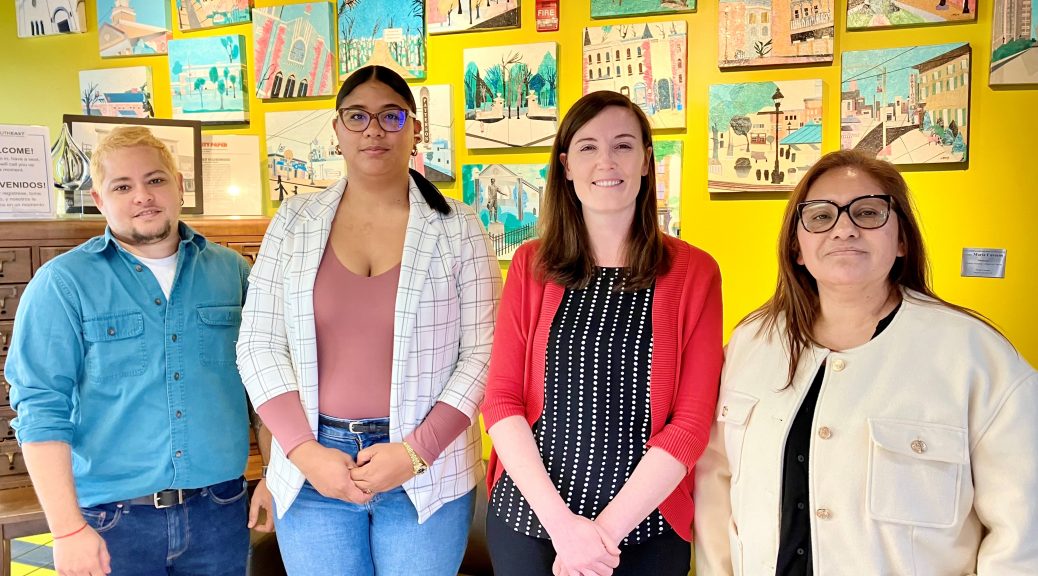Family Stability Program
Since 2015, Southeast CDC has managed the Family Stability Program, which provides intensive case management and financial assistance to families at risk of losing their home or having a utility turnoff. To be eligible, families must have a child at one of our community or partner schools:
- Graceland Park-O’Donnell Heights EMS
- Highlandtown #215 EMS
- Highlandtown #237 EMS
- Holabird Academy
- John Ruhrah EMS
- Tench Tilghman EMS
- William Paca ES
The Family Stability Program helps families with children stay housed and achieve economic self-sufficiency, which in turn reduces the number of disruptive school transfers for the children.
Since the program’s inception, we have served 182 families, with 112 of those families (approximately 62%) headed by immigrant parents.
When families first enroll in the program they may receive emergency assistance to prevent the loss of housing or utility turnoff. Once the crisis has been resolved, families then remain in the program for up to 12 months, meeting regularly with a case manager to set and work on goals related to financial and housing stability. Families are supported through case management, financial coaching. and referrals to community resources
The case manager for the Family Stability Program is Damien Baez.
Program management is provided by Kate Jakuta, Director of Family Support Programs. For more information on the Eviction Prevention Program, email Kate Jakuta at kate@southeastcdc.org or call the Southeast CDC at (443) 416-9788.
Baltimore New American Access Coalition
In 2022, Southeast CDC joined the newly created Baltimore New American Access Coalition (BNAAC), a Baltimore City initiative that seeks to minimize the economic and social disparities faced by immigrant and refugee families. The Coalition is a partnership between the Baltimore City Mayor’s Office of Immigrant Affairs (MIMA), Southeast CDC, and other community-based organizations.
Southeast CDC assists limited English proficient immigrant households access public health and human services programs that promote immediate and long-term housing and financial stability. These programs include SNAP (food stamps), Affordable Connectivity Program (internet discount), energy assistance, water bill assistance, childcare subsidies, Medicaid, Children’s Health Insurance Program (CHIP), temporary cash assistance (TCA), WIC, and referrals to primary care clinics. Households enrolled in the BNAAC program receive six months of support to allow time for our case managers to thoroughly screen families for various programs’ eligibility criteria, help the family apply to the programs, and follow-up to ensure their applications are fully completed and processed. This program serves families citywide.
To be eligible for BNAAC, households must meet the following criteria:
• Live in Baltimore City
• Be limited English proficient (LEP)
• Agree to participate in case management services
• Priority is given to households traditionally excluded from public benefits or impacted by the COVID-19 pandemic
For more information on BNAAC, email Kate Jakuta at kate@southeastcdc.org or call the Southeast CDC at (443) 416-9788.
Eviction Prevention
Between 2020 and 2022, Southeast CDC worked in partnership with the Baltimore City Community Action Partnership (BCCAP) to ensure that immigrants families had equitable access to the rental assistance funds that became available through the city as a result of the COVID-19 pandemic. As a result, we established our COVID-19 Eviction Prevention Program, which provided supported to limited English proficient (LEP) households in Baltimore City who had fallen behind on their rent as a result of a COVID-19 related economic hardship (such as job loss, reduction in hours, or missing work due to illness or childcare needs). The majority of households served through this program were Spanish-speaking. The program served families citywide.
As the city’s COVID-19 rental assistance program is no longer accepting new applications, Southeast CDC is likewise no longer enrolling clients in our Eviction Prevention Program. However, many of our client’s applications (submitted before the deadline) are still being processed and reviewed, and these families still rely on the follow-up support of our case managers.
As of the end of December 2022, Southeast CDC had assisted households with more than 350 submissions for rental assistance from the city, and our clients had been approved for more than $1 million in rental assistance funds. These numbers will continue to increase as more applications are processed and approved over the next few months by the city.
When Baltimore City launches a new rental assistance program, we will help limited English proficient households access for this assistance, in addition to any other benefits needed by the family, through our BNAAC program (see above).
